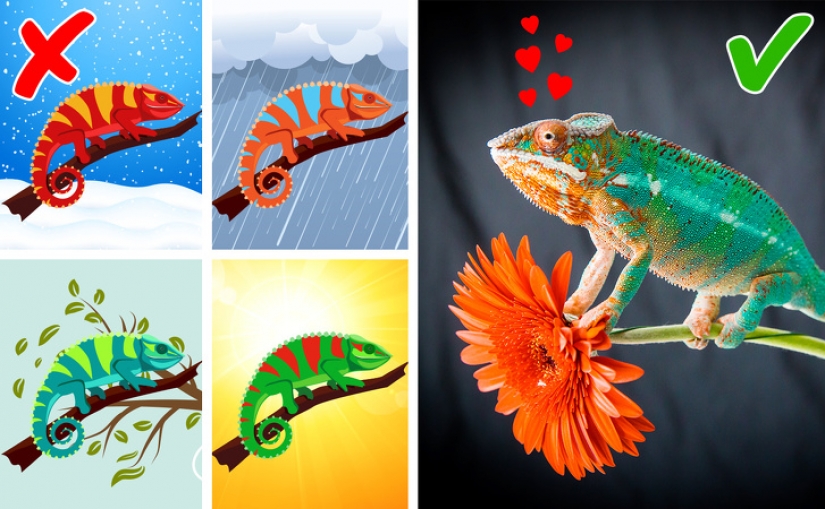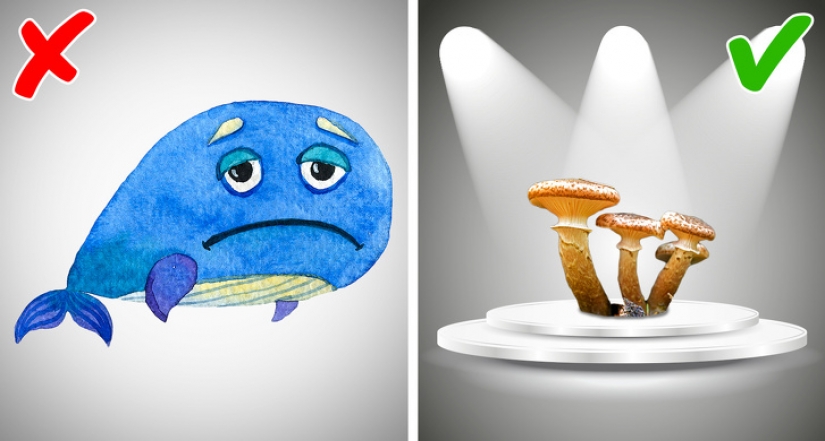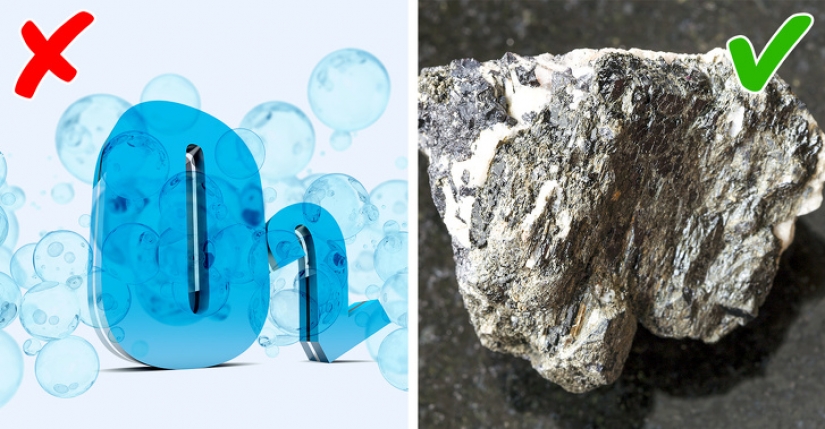8 scientific beliefs we officially declare to be false
Categories: Animals | Food and Drinks | Life hacks | Lifestyle | News | People | Production | Society | World
By Vika https://pictolic.com/article/8-scientific-beliefs-we-officially-declare-to-be-false.htmlWhat do you think is the probability of being killed by lightning or a falling asteroid? You may be surprised, but the probability of death caused by an asteroid is almost twice as high. Lightning strikes the ground 17 million times every day, which is 200 strikes per second. However, the risk of electrical death per year ranges from one to ten million.
We do not believe that not knowing is bliss, and we want our readers to be aware of the latest facts and truths.
8 PHOTOS

1. Chameleons do not change their color depending on their environment.
This may have been helpful in many cases, given that chameleons are not adequately armed against anyone who would like to eat them, but not. They have never been and will never change their color depending on the environment. In truth, the color of a chameleon depends entirely on its emotional state. And if its color is similar to the place where it is now, then it is completely random.

2. The blue whale is not the largest living thing on Earth.
It's huge, no doubt about it, but it's not the biggest. The trick here is in an important nuance - the largest living thing on Earth is, in fact, a mushroom. And his name is Armillaria Ostoyae, or, as you know, Humongous Fungus. In the Maleur National Forest, Oregon, USA, the record mushroom has been growing for approximately 2000-8000 years (the exact age of this giant creature cannot be estimated). It occupies 880 hectares, and its largest part is hidden from human eyes.

3. Cockroaches will not survive a nuclear war.
Many people tend to think that cockroaches are indestructible. Yes, they live on Earth much longer than humans (about 280 million years), and it is very difficult to get rid of them. In addition, they can live without ahead for some time. But a scientific experiment in 1959 showed that cockroaches would be among the first insects to die in a nuclear disaster.

4. Eating a lot of carrots will not improve your vision.
Carrots are a good source of vitamin A, a lack of which leads to night blindness. The easiest way to improve this condition is to increase your intake of vitamin A, which is most commonly found in carotene. Sure, carrots have carotene, but apricots, blueberries, spinach, and other dark leafy vegetables have even more carotene. But eating a lot of carrots will only give your skin an orange tone, but won't help you see better in the dark.

5. The recommended amount of sleep is less than 8 hours.
In 2004, Professor Daniel Kripke published an article in which he stated that adults who sleep for 8 hours die younger than those who sleep 6 or 7 hours during the night. His research took 6 years and included 1.1 million test subjects. More people who slept less than 8 hours but at least 4 were still alive by the end of the study.

6. Water is not transparent - it has a color.
People used to think that the water is clear and transparent, and the reason why the seas and oceans appear blue is due to the reflection of the sky. But the water is really blue. You can see that there is a very light shade of blue if you look at a deep hole in the snow.

7. Oxygen is not the most abundant substance in the world.
If you're wondering what's special about this common stone, you are not alone. It is a calcium titanium oxide mineral that is composed of calcium titanate and is called perovskite. It makes up almost half of the total mass of our planet. Scientists believe that the Earth's mantle is composed of perovskite, but this hypothesis has not yet been proven.

8. Colds are not that common.
Depression is one of the most common diseases in the world - much more common than the common cold, according to statistics
Keywords: Science | Facts | Beliefs | Reality | Fake | Information | Scientists | World | Truth | People | Animal
Post News ArticleRecent articles

It's high time to admit that this whole hipster idea has gone too far. The concept has become so popular that even restaurants have ...

There is a perception that people only use 10% of their brain potential. But the heroes of our review, apparently, found a way to ...
Related articles

Have you heard of such a phenomenon as the doorway effect? Let's put it simply: have you ever walked into a room and immediately ...

Yes, Pets benefit our health and it is proven by science. Their very existence certainly makes us happier, but also prolongs life. ...

It is not 100% to say that tomorrow is with us nothing bad will happen, because often life throws up surprises when least expected. ...

New Year's is a time to surprise and delight loved ones not only with gifts but also with a unique presentation of the holiday ...